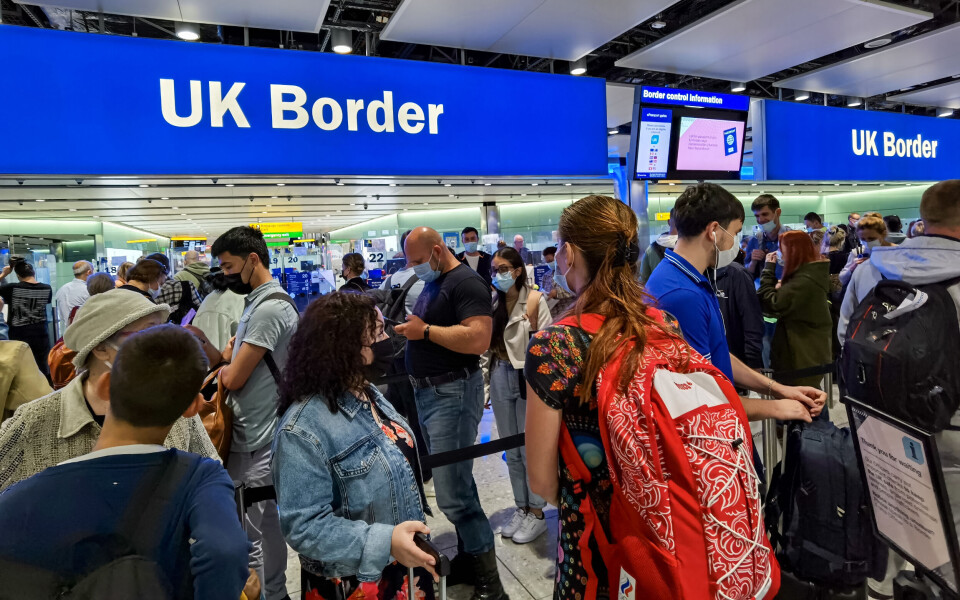-
What is the tontine option for property in France?
Option should be considered if buying for the first time
-
Is it possible to transfer my apartment to my daughter in France?
Gifting only residual ownership is one of many options
-
Can I install a small structure for work use on my land in France? - Partner article
'Garden shed tax' can be levied in certain circumstances
France to UK family visit: What gifts can we bring under Brexit rules?
As in the other direction, post-Brexit there are new rules as to what travellers can take with them. You should bear them in mind when taking gifts for UK family

In October we plan to visit the UK: What are we allowed (or not allowed) to take with us as treats for friends and family?
When entering the UK from an EU country such as France, there are now some similar restrictions as those faced by those travelling in the opposite direction as to what you may or may not bring with you.
However new rules restricting certain foods are mostly not yet in place in the EU to UK direction.
Read more: Post-Brexit rules for bringing items into France from the UK
Restrictions in place this year relate mainly, for example, to duty-free allowances on tobacco and alcohol, bringing in large sums of cash or costly gifts and souvenirs.
This article focuses on holiday visits to the UK, not moving back to the UK from France, or transporting large amounts of furniture etc from a second home (we will address this in a future article).
Bringing foods to the UK
The good news here is that the UK has so far delayed most restrictions and checks on bringing in certain foods from the EU, and this is not expected to change before next year.
This means you can still bring in meat and dairy products, fish, eggs, honey, fruits, vegetables and most seeds. In other words, you are currently free to take in French foie gras, pâté and cheese.
However, the UK government’s website states there are already restrictions on bringing plants for planting and certain types of seed for planting.
In general, then, any food ‘treats’ you would like to bring will not pose an issue this year.
For future reference, this page clarifies the types of food that can be brought from anywhere in the world without issues, such as cakes that do not contain fresh cream, and breads (though not sandwiches containing meat or cheese).
Tobacco and alcohol
The limits on these items, before UK VAT, customs and excise duties apply, are generous and also unlikely to pose an issue for a few bottles from friends and family, though take care of the quantities for spirits.
They are:
- 42 litres of beer
-
18 litres of still wine,
aswell as…
- 4 litres of spirits and liqueurs over 22% alcohol or 9 litres of fortified wines such as port or sherry and other alcohols up to 22%, or sparkling wine
The latter two allowances can be split, for example half the amount for spirits and half for fortified wine.
- 200 cigarettes
- 100 cigarillos
- 50 cigars
- 250g tobacco
- 200 sticks of tobacco for e-cigarettes
Bringing in cash
You must declare any cash or traveller’s cheques of £10,000 or more brought into the UK. This applies also if a family group is bringing in more than this combined.
This should be done in the 72 hours before travel, and you can do it online here, for entering Great Britain
You can also declare over the phone on 0044 (0)300 322 9434 or at the UK port or airport on a form.
Bringing in gifts or souvenirs
In theory costly items bought in France and being taken in, especially travellers’ gifts or souvenirs, should be declared if they are over certain personal allowance amounts, per person (this would not relate to your own clothes and toiletries etc that you bought in France and are using on the trip and taking back).
So, for example you should watch out if any ‘treats’ for family, are in the nature of costly fashion items, jewellery or electronics etc.
The amounts are up to £390 per person. If you go over, you pay VAT and duty on the total value of goods, not just the value above the allowance.
Duty is not payable if there is proof of the goods being made in the EU. Proving the latter is simpler where the total value of items is less than £1,000. In this case, labels and packaging are enough, otherwise you could be asked to show an invoice including specific information on origin.
If you need to make a declaration, you can do this online in the five days before arrival in the UK at this site.
The UK’s customs service, HMRC, also has a helpline for information at 0044 (0) 300 322 9434.
Related articles
UK-EU customs checks and taxes: Reader’s experiences so far
What are the rules for bringing British teabags to France post-Brexit?
























